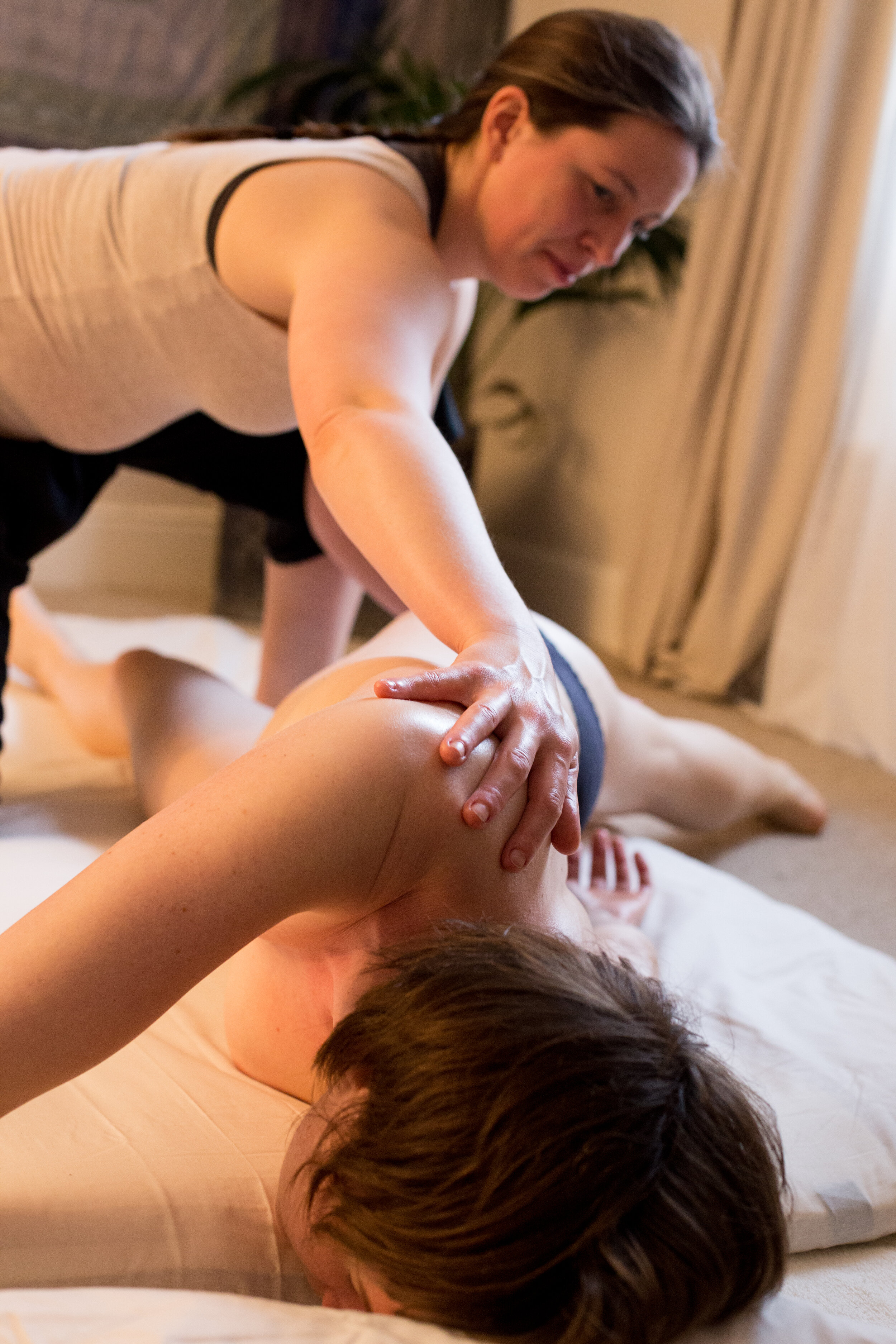
“The world needs this massage, and there is only me”
— Gupi, my massage teacher in India, 2004
~ Currently registering interest for upcoming courses ~
Learn to give Bengali Massage in Bristol and join an amazing lineage of healers and therapists.
Outside of Auroville, India, as far as we know there is no one else actively practicing this transformational massage except for Catherine and her students.
Learn to share this unique treatment with a small group of trainees.
What is Bengali Massage?
Bengali Massage offers the same benefits as holistic massage; muscle loosening, tension release, vascular system stimulation and fascial release. Alongside these amazing benefits, Bengali Massage offers a holistic experience where freedom of the body is encouraged and can be experienced by the client.
Bengali Massage is:
Holistic
Intuitive
Multidimensional - encompassing all bodily systems
This massage is different from other modalities that we are familiar with in the West largely because it was developed using intuitive knowledge rather than from consulting with books and using the logical brain. It is a deeply intuitive process that requires a sense of openness and trust from the practitioner so that they are able to listen to what is truly needed without imposing their idea of how the body should or should not be.
The treatment is a set sequence of movements including various massage, mobilisation and vibration techniques. Each massage uses the same routine, but a client who has had many treatments will experience something different every time.
‘It is a conversation with the body. You always ask the same questions. Depending on the answers, the conversation will go different ways.’ Gupi
A core teaching of Bengali Massage is that the systems of the body are inextricably linked. It is crucial that no matter what condition presents itself, the body is being treated as a whole, with all parts being seen and heard.
“The first object of the physician is to find health - anyone can find disease” Dr. Still (Founder of Osteopathy)
Unlike more remedial forms of massage, Bengali Massage is not about the practitioner ‘fixing’ the client but is about helping the body to remember its possibilities and fundamental freedom. The body is always looking for health and potentially has the capacity to get there. Bengali Massage is not looking to interfere with the body. It is seeking the privilege of meeting with it and joyfully, playfully reminding it how to return to its underlying place of health.
When asked how long it took to learn Gupi said “with every body I am still learning”.
Where does it originate?
Bengali Massage can be traced back to an experimental township in Tamil Nadu, India, named Auroville (not Bengal!). Auroville was based on the teachings of Sri Aurobindo. Many of the first Auroville settlers came from the ashram, along with them came a Bengali man named Virenda. Virenda had spent time working as a semi-professional boxer and tennis player but on arrival was given a new position within the community. He was told he would heal people with his touch. A confusing prospect for someone who had never encountered massage in a formal setting before. Upon hearing his concerns regarding his new position, The Mother replied “your hands will know” and she was not wrong. Virenda became renowned as a healer and there are many stories of his powerful and sometimes intense treatments.
Another man who joined Auroville in the early days when the land was still being transformed from desert to township was a French man named Gupi. Gupi was immediately struck by the need for healing touch within the community and was compelled to learn Virenda’s techniques in order to be of service to people of Auroville. Virenda passed his wisdom onto Gupi and a handful of others before he died. Gupi developed the massage and became a renowned practitioner in his own right. Many people were drawn to Auroville in search of his healing hands and he was well known within the community for his power to work intuitively with even the most broken of bodies. Gupi taught this form of massage freely to anyone who came to learn from him and in 1995 Catherine Balaam became his student. She spent two months in Auroville learning from Gupi and now successfully combines her knowledge of Hanna Somatics, Bowen technique and Bengali Massage to teach and treat her clients in Bristol, UK.
The name Bengali Massage comes from the fact that the technique originated from Virenda whose birthplace was Bengal. There is no known traditional Bengali Massage and so the name has only a loose connection with the province.
Dates
The course is split into 7 modules over 7 weekends
09.30 - 5.30 including 1-hour lunchbreak
Future dates TBC - please register your interest below.
Price
£1,245 with a 30% early bird discount available making the course £870
A deposit of £200 will be required to confirm your place. Full course payment can before the first day of the course.
Pre-requisites
You must have had at least 1 Bengali Massage treatment with Catherine or another Bengali Massage practitioner.
Assessment
Course days - ongoing assessment
Case Studies x 10 (3 treatments per case study)
During weekend 4 Cat will observe you giving 1 treatment to a client of your choice
Exam - Cat to observe 1 treatment with a client of your choice
Additional Requirements
Anatomy and Physiology ITEC Level 3 - you’ll need to complete this separately at an extra cost set by the examiner.
Additional Tutor Support
If required, you will be able to book the following support sessions with Cat during or after your course:
Mentoring with Catherine - 1 hour £30 per hour
Mentoring with client - £75 - 1.5 hour treatment + 0.5 hour chat after (without client)
How to Apply
If you’re interested in applying for this course or you have any questions please contact Cat directly via email.
If you have any questions about the course please contact me
